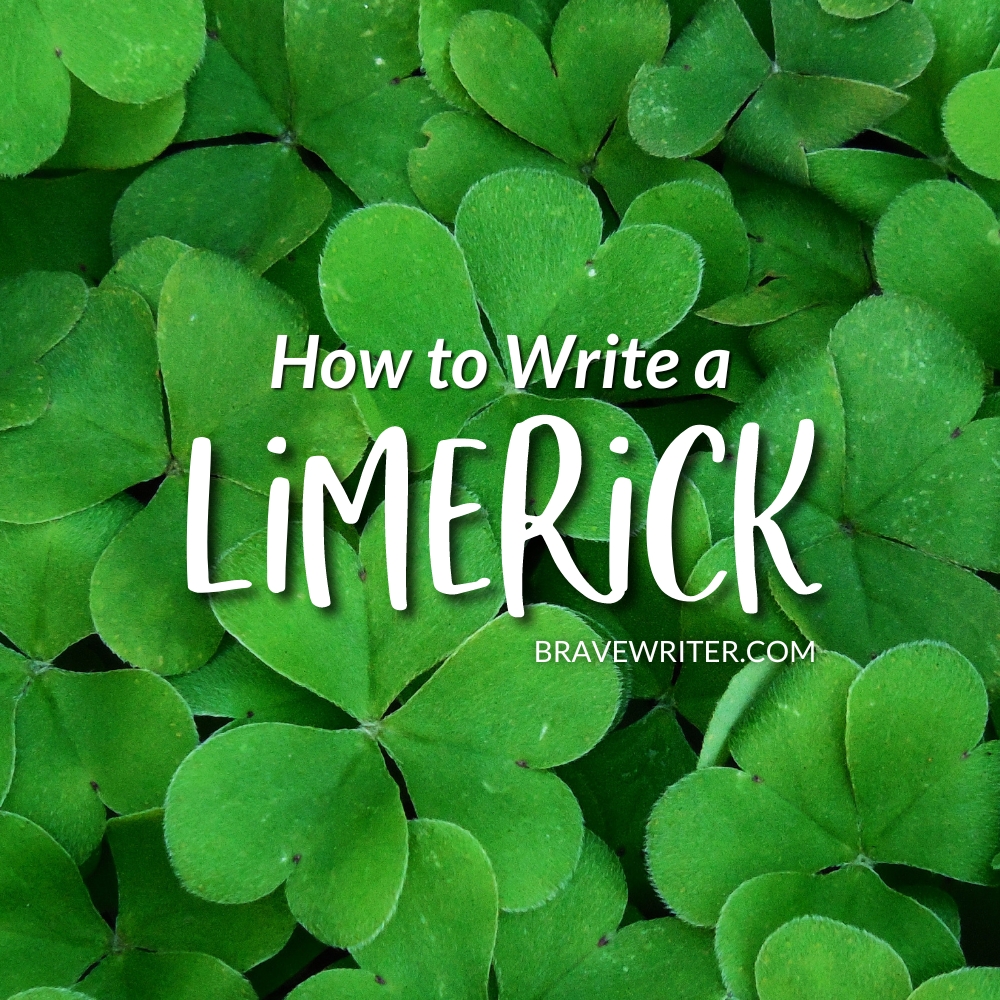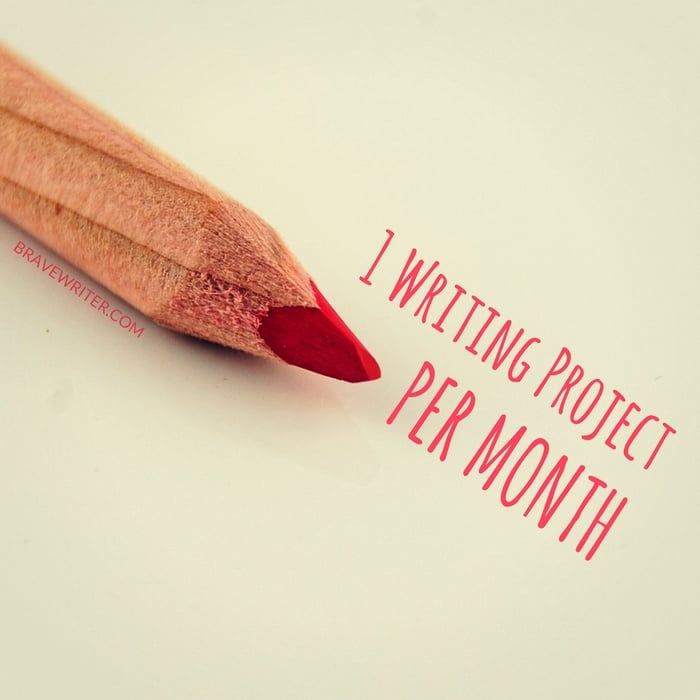
Sometimes moms have a hard time wrapping their brains around Brave Writer. They ask questions like:
- What grade levels is it for?
- Do I need any other writing program if I use Brave Writer materials?
- What do I do once I’ve worked through Growing Brave Writers? Do I go on to some other program or can I keep going with Brave Writer?
- What’s the difference between the Arrow and Partnership Writing?
So with all the new visitors and emails flying into my in-box, I thought I’d take a moment to give you another way to think about Brave Writer.
Brave Writer requires a paradigm shift
in how you think about writing.
Like any paradigm shift, it feels “wrong” at first, even though you also feel drawn to it. Brave Writer is not about programmatic writing. It’s not organized by grade level. It’s organized by developmental stages of growth.
The reason you may feel flustered by Brave Writer is that it requires you to consider each individual child’s needs and then match the right products to him or her.
That’s a bigger challenge initially than clicking on “1st grade” and buying the 1st Grade Package. But the upside is this: we offer TONS of support (email, phone calls, and the membership community, Brave Learner Home) to ensure that you buy the right products for your particular family. Once you enter the world of Brave Writer, we take care of you and your kids. You have access to me (Julie Bogart) and my staff.
We teach YOU how to be a homeschooling parent and writing coach simultaneously without damaging your relationship with your child, as well as provide tools with processes and exercises to help you establish a writing process that is tailored to your unique child.
It’s not: “Write a descriptive paragraph, using a topic sentence, an ‘ly’ word for the second sentence, and a clincher for the last sentence.”
It is: “Delightful child of mine: you have so much to say. Let’s see how we can get that captured on paper in any way we can so that you and I can play with your ideas and thoughts, so we can expand them, enjoy them, and share them with others. Let’s discover all the cool, interesting thoughts inside you. I’m on your team and I have some tricks up my sleeve for how we can make writing comfortable, interesting, less taxing, more satisfying, and even enjoyable. You deserve that. Have a brownie.”
See how different that is? It helps you to execute ANY writing you do with your child, in any other curriculum you are already using. It’s the manual that tells you how to teach writing, not what to teach.
Can you feel the difference?

Brave Writer products facilitate writing growth
through a specific set of ideas about writing.
Those ideas are:
- When growing a writer, you want to match the level of support you offer to the developmental skills of your child. Help helps!
- It’s essential to separate the mechanics of writing from the original writing voice in the early stage of development.
- We use someone else’s writing to teach mechanics.
- We capture the child’s original writing voice on paper, on screen for that child until the mechanics take hold.
- The writing process is more important than writing formats, particularly in the early years.
- Writing growth happens through a series of papers, not in every single paper.
- Writing with freedom, support, and modeling creates space for kids to access/delve into their own language that reveals their natural insight, vocabulary, and passion.
- Parents make the best coaches and allies to their children.
- Any native speaker who reads and writes can be his or her child’s writing coach.
- Creating emotional safety for writing risks is the single most important skill a parent must master to grow a writer.
- A language rich environment is more important/effective than spelling, grammar, vocabulary, literature, and writing workbooks.
- Poetry Teatime is the gateway drug to all things Brave Writer.
A wonderful side-effect is that it will make you a better homeschooling parent, period. The paradigm shift away from “school,” to “home” is profound. You’ll find that you are suddenly much more able to be there for your kids, valuing their quirky individuality, no matter how skilled or unskilled they are in academics. You’ll discover that you love hanging out with these little people and you’ll be startled by how their mind life delights and fascinates you (rather than worrying that they are behind).
In other words, Brave Writer’s paradigm shift speaks to the whole of how you home educate but uses writing as the primary lens through which you re-envision what it means to celebrate, nurture, love, and lead your fabulous little people.
























